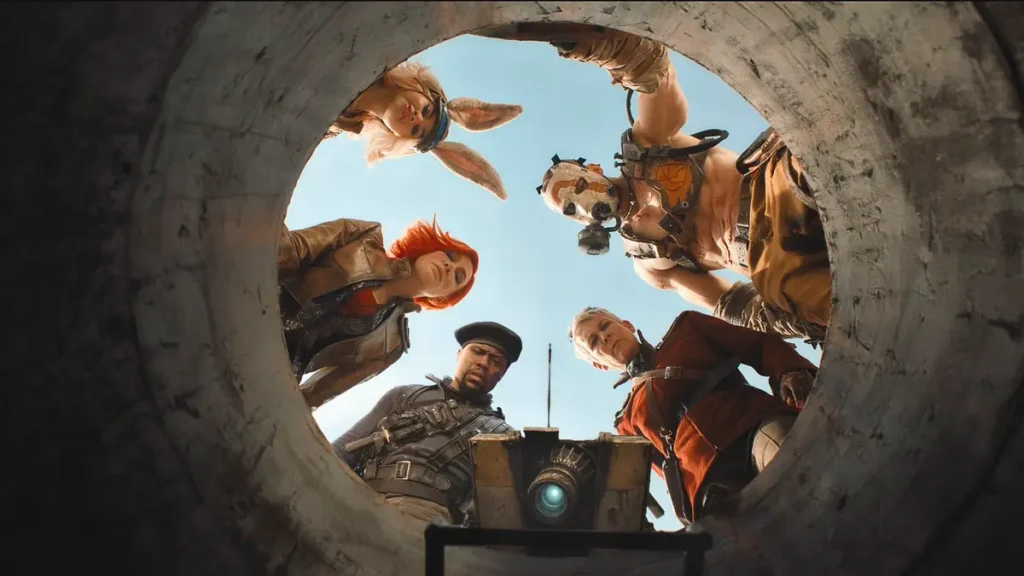A Lackluster Adaptation
Three years after wrapping up principal photography, Borderlands finally makes its way to theaters on August 9, 2024, and it’s clear why its release was postponed. This adaptation of Gearbox Software’s video game series arrives as a lackluster imitation of Guardians of the Galaxy, revealing itself as a haphazard attempt to mimic the success of Marvel’s space-faring adventures.
A Misguided Performance
Headlined by Cate Blanchett in a role that could only be described as generic, Borderlands is a dreary rehash of well-trodden sci-fi tropes. Writer and director Eli Roth has delivered a film that feels like an uninspired carbon copy of superior franchises, lacking the unique charm and depth that made its predecessors memorable. Instead of offering a fresh take, the film settles for a skeletal storyline and underdeveloped characters.
The film opens with a scene that feels like a low-budget riff on Star Wars, featuring rebel soldier Roland (played by Kevin Hart) rescuing Tiny Tina (Ariana Greenblatt) from a starship. Roland is accompanied by the hulking Krieg (Florian Munteanu), a masked brute known as a “psycho.” The plot centers around Tiny Tina, who is prophesied to unlock a secret vault on the planet Pandora. This vault is rumored to hold immense power, making it a target for various nefarious characters.
The Film’s Many Flaws
Blanchett stars as Lilith, a bounty hunter who reluctantly returns to Pandora to find Tina. Lilith’s character is defined by her fiery red hair and her unflappable demeanor, but Blanchett’s portrayal lacks the emotional depth necessary to make her role compelling. Her interactions with the film’s colorful characters, including the robot Claptrap (voiced by Jack Black), feel forced and underwhelming.
The screenplay, co-written by Roth and Joe Crombie, relies heavily on clichés and fails to provide the engaging details needed to captivate the audience. Lilith’s journey, which involves locating sacred keys to unlock the vault, is a monotonous trek through a world that combines the desolation of Mad Max with the eccentricity of Fallout. The film’s attempts at humor and action fall flat, and its reliance on familiar sci-fi elements feels tired rather than exciting.
The supporting cast, including Jamie Lee Curtis as Dr. Patricia Tannis, is similarly wasted. Curtis’s role is limited to delivering exposition and adding a minor subplot about Lilith’s “mommy issues,” which ultimately adds little to the overall narrative.
A Missed Opportunity
Despite its ambitious scope, Borderlands fails to capture the essence of the beloved video game series. The film’s attempt to recreate the cooperative, high-octane chaos of the game falls short, and its visual effects ranging from passable to pedestrian do little to enhance the experience. The film’s reliance on CGI and its lack of emotional depth make it a disappointing addition to the genre.
The film’s pacing issues, which may be attributed to prolonged post-production and reshoots overseen by Deadpool director Tim Miller, do little to remedy its fundamental problems. Instead, Borderlands feels like a garish rehash of familiar ideas, lacking the creative spark that could have made it a standout adaptation.
Conclusion
Ultimately, Borderlands is a stark reminder of how challenging it is to translate the magic of a video game into a compelling film experience. With a lackluster plot, uninspired performances, and a failure to capture the essence of its source material, the film crashes and burns, leaving audiences to question what went wrong in its long journey from concept to screen.

